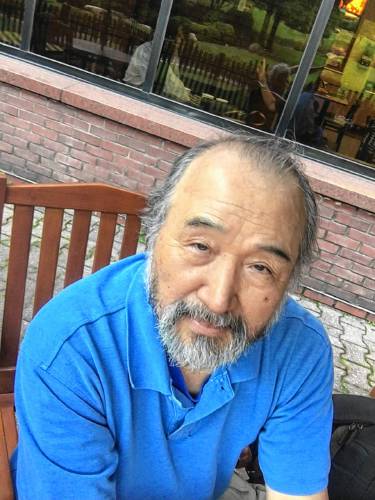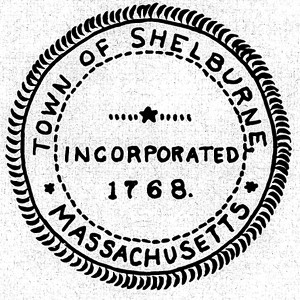As I See It: Better off choosing with our head or heart?

Jon Huer
| Published: 05-31-2024 2:53 PM |
Facing our choice of president in November, most American voters will cast their ballots for the candidate their hearts choose.
Although it is an ostensibly “public” event — picking our nation’s chief administrator — neither the “nation” nor “administrator” is involved in our decision-making. The process is largely determined by the heart in subjective, personalized isolation, often hidden even from our family or friends. Such processes are also true for congressmen, senators, governors, mayors, selectboard members, dog-catchers, and so on, where the decision is made mostly alone in privacy.
On the other hand, both the Boston Celtics and New England Patriots have recently selected their head coaches, chosen by a committee of experts who selected the best qualified persons for the teams. Although the coaches are chosen without public participation (such as voting), the choice is considered the best available arrived at with professional objectivity and technical facts as the basis of their choice. In short, unlike elections of the heart, these strictly secret processes are highly “public” and “open.”
These two methods of selecting important social positions — one elected from the subjective heart and the other appointed from the objective head — reveal some interesting contrasts. For example, while the president of the United States is selected by the electoral hearts, the president of local banks is selected like football and basketball coaches, someone who is deemed professionally and technically best qualified for the bank. For the U.S. president, it’s somebody we like; for the bank president, it’s somebody deemed best for the bank.
Also, notice that our military generals are selected in the way we select coaches and bank presidents, which is very professional and technical. Knowing well that it would be a disaster for the military if we elected our generals the way we elect presidents, we gladly leave the selection of generals in the hands of strict professional and technical processes. But we go on and choose our presidents in the most blithely haphazard way possible. In our electoral decision-making, no proud American would ever listen to anyone wiser than they who might advise them on how to vote intelligently in their presidential choice-making. If it’s our vote, we don’t listen to anybody else.
Yet, we don’t complain that we didn’t get to vote to select the coaches, bank presidents or generals. We know we are not qualified enough to meddle in these highly professional-technical businesses. Do we believe that the businesses of coaching, war-making or banking are “too important” to mess with, but the business of the nation can be run by anybody our flipping hearts choose? Does this explain the careless way we elect the U.S. president but not coaches, generals or bank presidents?
Most towns and cities select their police chiefs by the professional-technical process, not by election. But we elect sheriffs (county police chiefs). Is there any quality difference between the positions we elect with our hearts, like presidents and sheriffs, and those we select using strictly professional and technical criteria, like coaches, generals, bank presidents or police chiefs?
Criminologists recognize that sheriffs are more susceptible to corruption, like bribery, than are police chiefs. Elections appeal to your hearts and emotional responses and sheriffs who must please the county hearts and emotional needs tend to be less professionally and technically inclined in their daily rounds and are generally relegated to managing jury pools and vote and gun registrations, but not serious criminal investigations. Such biases against sheriffs must be related to their elected origins, criminologists surmise.
Article continues after...
Yesterday's Most Read Articles
 Two dogs, three cats killed in Orange fire
Two dogs, three cats killed in Orange fire
 Leyden house fire reignites on Monday
Leyden house fire reignites on Monday
 PHOTOS: Hundreds participate in ‘Hands Off!’ standouts across Franklin County
PHOTOS: Hundreds participate in ‘Hands Off!’ standouts across Franklin County
 Plans to move Northfield EMS to Bernardston property fall through
Plans to move Northfield EMS to Bernardston property fall through
 Shelburne Selectboard determines police detective will retain job
Shelburne Selectboard determines police detective will retain job
 Bulletin Board: Greenfield's Savannah Thomas wins Knights of Columbus Hoop Shoot state title
Bulletin Board: Greenfield's Savannah Thomas wins Knights of Columbus Hoop Shoot state title
If we need more convincing evidence to show that our hearts’ choices are inferior to our heads’ decisions, I recommend that we consider something most of us have participated in our lifetime directly and personally, letting the heart do all the work: the way we choose our spouses, in which nothing but our solitary feelings in the heart (like presidential votes) dictate who our marriage choice should be.
How good are the results of our decisions of the heart? Not very good: At least 75 percent of spouse choices are deemed failures, 50 percent ending in divorce in America and 25 percent of couples enduring their unions for the sake of children or economy or simple inertia. (Second and third marriages fare worse). Considering the way we choose our spouses, with nothing but our hearts as the guide, naturally, good spouses are as rare as good presidents.
Now, suppose we select our spouses in the manner we select our coaches, generals or bank presidents — that is, applying the best professional and technical expertise, choosing our best-fit matches. Most of us agree that probably the end-result would be much better. Research shows that “arranged” marriages, in which spouses are matched by outside “experts” using objective factors as they see them, not blinded by the trickeries of the heart, as often practiced in America’s frontier days and still in India and Korea today, tend to be more stable and last longer.
Regarding the history of our presidential choices, historians have concluded that British monarchs, crowned by the random workings of bloodlines, did as well as our elected presidents in running their country. In our history, in spite of our glorification of past presidents, only a handful is considered “great,” but most “mediocre.”
If we chose our presidents with our head, not heart — considering character, experience, intelligence for the nation and generations — would someone like Donald Trump ever make the first cut? Among all democracies, we are known to lead the world in voluntarily voting against our own interest.
No wonder, Plato and Thomas Hobbes rejected democracy as highly unreliable.
Jon Huer, columnist for the Recorder and retired professor, lives in Greenfield.






 My Turn: ADUs and the politics of fear
My Turn: ADUs and the politics of fear My Turn: The war on us has begun
My Turn: The war on us has begun Jon Oltman: And the takeaway is?
Jon Oltman: And the takeaway is? Edward Schwerin: Trump regime not the answer
Edward Schwerin: Trump regime not the answer
